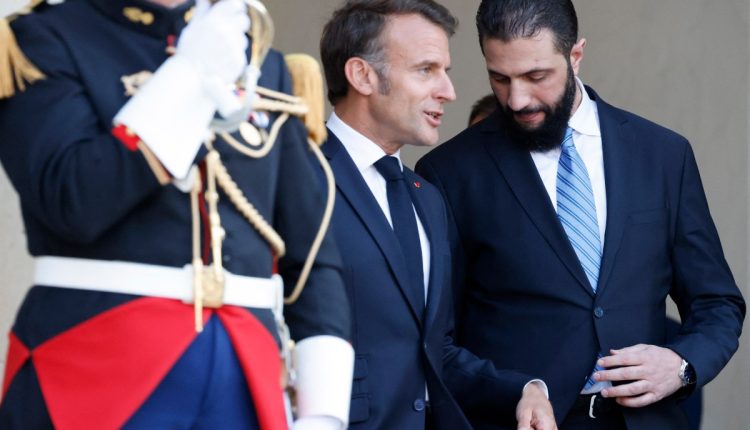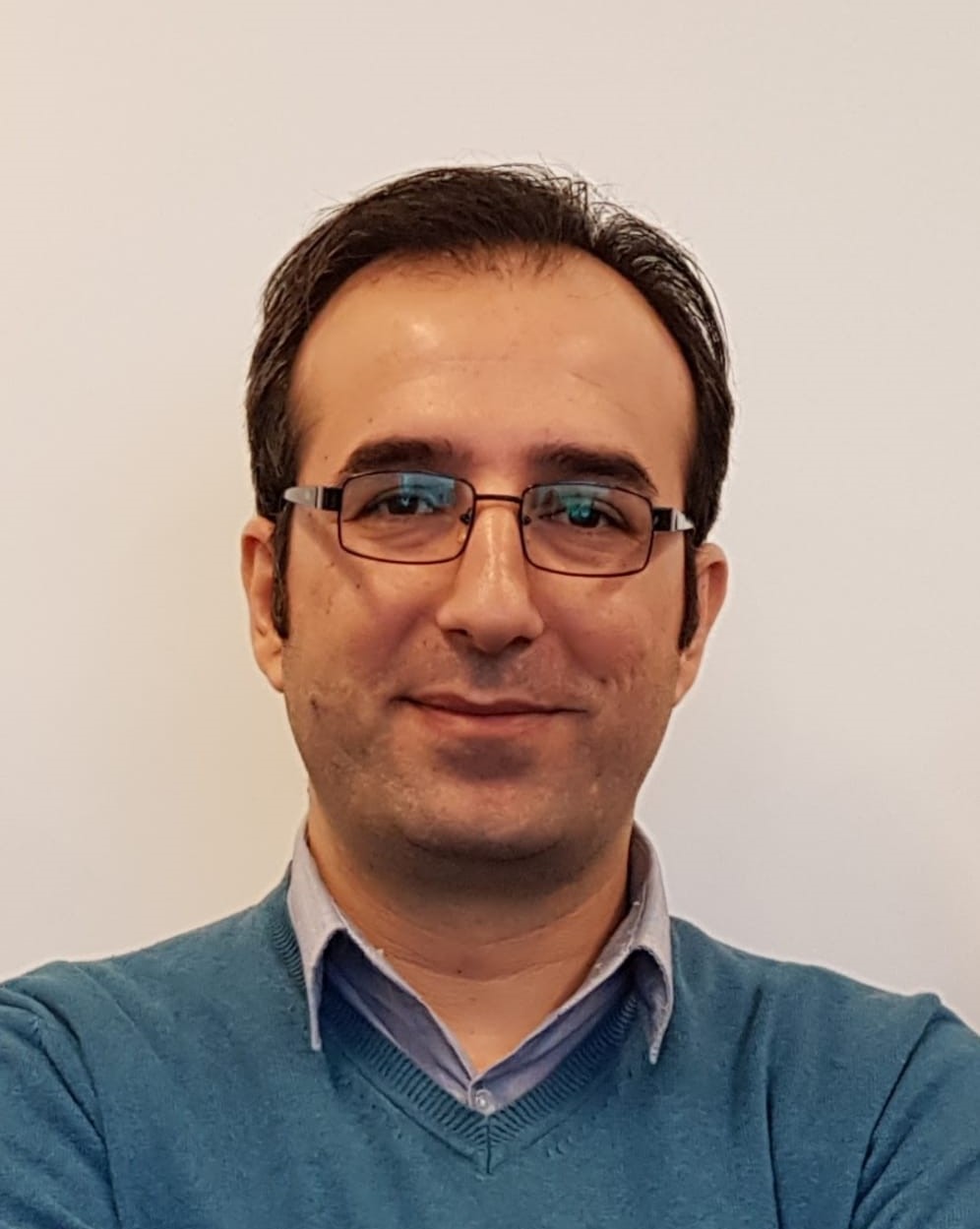Are Macron’s Demands Genuine or Just a Way to Avoid Criticism?
By Shoresh Darwish
There is no greater irony than for a foreign head of state to ask the leader of a country hosting him on its territory to stop his regime from harming its vulnerable groups and communities, as was the case in the Paris meeting between Emmanuel Macron and Ahmed al-Sharaa. However, were the demands made by the French president genuine, or were they merely words to be recited publicly? Did the Paris visit mark the first chapter in Macron’s international effort to rehabilitate al-Sharaa?
Shortly after Ahmed al-Sharaa was able to take residence in the People’s Palace, the Arab Contact Group meeting in Aqaba emphasized the importance of respecting human rights, women, and minorities. Similarly, US Assistant Secretary of State for Middle East Affairs Barbara Leaf offered a prescription that could end the civil war and help al-Sharaa and his circle shed their abolitionist, bloody, and terrorist-stigmatized past. The same initial principles regarding managing diversity were echoed by Western diplomats who visited Damascus, and these principles intensified following visits by the foreign ministers of Germany and France to Damascus, during which they outlined an action plan for a new Syria.
During the meeting between al-Sharaa and Macron in Paris, the French president demonstrated his commitment to Syria and its current issues, particularly ongoing support for the Syrian Democratic Forces in the fight against ISIS terrorism, stopping massacres against Alawites and Druze, finding a solution to the foreign jihadist dilemma, and ensuring that perpetrators of crimes are held accountable. This commitment cannot be in any way attributed to Paris’s desire to reclaim some of its colonial past, as some have claimed, nor to impose French tutelage on Syria, nor to replace the influential states within Syria. While it is true that France has economic interests along the Mediterranean and in Syria, these economic interests are not the sole factors shaping its Syrian and Middle Eastern policies. France also plays a leading role in shaping European policies toward Syria and the region, especially regarding terrorism, poverty, chaos, and migration.
France’s presence in Middle Eastern politics can be broadly conceptualized as involving mediating roles or occupying a secondary position within the Western axis, focusing subsequently on adopting a centrist stance between forces hostile to authoritarian regimes and their allies. Paris, which severed its relations with Khomeini’s Tehran at the height of the US-Iranian disputes, as well as its relations with the regimes of Saddam Hussein and Hafez al-Assad during the peak of US and Western disagreements with those regimes, also later supported oppositions against those regimes. This reflects much of the French foreign policy doctrine, from both the right and the left, despite the fact that French society, which opposes authoritarian and dictatorial regimes, still exerts its real influence in shaping the boundaries of engagement with these regimes and in limiting the extent of their support or sponsorship. In this same context, Macron’s meeting with al-Sharaa aligns closely with traditional French policy, which emphasizes preaching and giving advice, coupled with forms of political and economic openness, including efforts to lift sanctions on Damascus.
Al-Sharaa subtly suggested that Western sanctions were no longer justified after the fall of the Assad regime, overlooking the fact that some sanctions are linked to the structure of the current regime, as many of its military and civilian leaders, including Al-Sharaa himself, remain on Western and American sanctions lists. Additionally, the travel of the interim Syrian president still requires Security Council approval. In other words: Al-Sharaa’s insistence on lifting sanctions effectively entails removing those sanctions that target him and many figures within his government and military.
The issue of lifting sanctions takes us back several years to when the first Trump administration nearly removed some of Caesar’s sanctions on Syria, on the condition that the Syrian regime change its behavior. Changing behavior rather than regime change was the clearest Western position, and this pattern is repeated today with the new Syrian government, which is expected to alter its violent, exclusionary, and manipulative conduct. It is worth noting that demonstrating flexibility and a superficial change in Damascus’s behavior could lead to the full or partial lifting of sanctions; however, this does not mean that sanctions cannot be reimposed if Damascus reneges on the principle of behavioral change and ceases to respond to the demands for reform.
The visit to Paris cannot be regarded as insignificant or downplayed based on personal preference. If it is not directly advantageous to the French, it is at least beneficial to Al-Sharaa and his administration—despite what appeared to be a French rebuke of the current Syrian regime’s approach to human rights issues. From a pragmatic perspective, the visit can be seen as a preliminary step in Qatar’s effort to elevate Al-Sharaa’s administration in Europe, while other Gulf countries will promote him in the United States. Subsequently, he may be presented not merely as a temporary president, but as a leader who can keep pace with world presidents and monarchs, and who possesses the authority to conclude agreements, including a potential peace treaty with Israel.
In the meantime, all that Al-Sharaa seeks are two issues rooted in external facilitation: time and money. Requesting time allows Al-Sharaa to build his own system, through which he can integrate foreign jihadists with local ones, and develop a new approach to limit the barbaric “call to arms” policy and the naked, open violence against sectarian minorities. This involves reducing such violence as much as possible and framing these incidents as individual cases that can be managed, condemned publicly, and disavowed internationally—similar to the approach after the fall of the Assad regime. Additionally, granting him time helps to settle the differences between his ruling faction and the various Syrian Sunni blocs, which requires at least as much time as is needed to organize the chaos of massacres against Alawites and Druze.
Furthermore, the March 10 agreement between the Syrian government and the SDF gave Al-Sharaa time to establish himself in other parts of Syria—not because General Mazloum Abdi helped him—but because his decision not to engage in armed conflict with the SDF and the Kurds reduced negative international signals regarding the substance of his rule. A conflict with the SDF would have put Al-Sharaa’s decisions in the hands of the Turks, given the limited capabilities of the forces under the Ministry of Defense and their reliance on direct and indirect Turkish support.
If the agreement is the only bright spot, as one might infer from the words of the French president, Macron’s support for it reflects a desire for such an agreement to serve as a foundation for future deals with the Druze, and possibly with the Alawites, at a later stage.
There is also an urgent need for funds to strengthen al-Sharaa’s capabilities within the emerging bureaucratic apparatus of the Syrian state. This issue has also begun to align with international facilitation, as Qatar, with U.S. approval, has taken on the task of paying public sector salaries. This Qatari support could serve as a springboard for the infusion of additional funds under different names, even if sanctions on Damascus are not lifted.
Therefore, it can be said that the Paris visit is the royal route offered by France to bring al-Sharaa into the circle of legitimate presidents, especially since Paris is managing European policy alongside Berlin. Alongside supporting Arab countries that endorse al-Sharaa, France could reshape its relationship with Damascus based on a pragmatic approach characterized by overlooking violations, turning a blind eye to the new factional power structure, and establishing new economic partnerships with Syria. Most importantly, France could also strengthen its economic ties with Arab countries that support al-Sharaa. Naturally, Damascus will not fully comply with French messages—just as it previously ignored the messages carried by Barbara Lev and the foreign ministers of France and Germany, which Paris is well aware of. However, these are ‘preachy’ statements that must be made publicly, both to the international and French audiences and to frightened Syrians, in order to mask the actual policies that will reveal their effects later on.




Comments are closed.